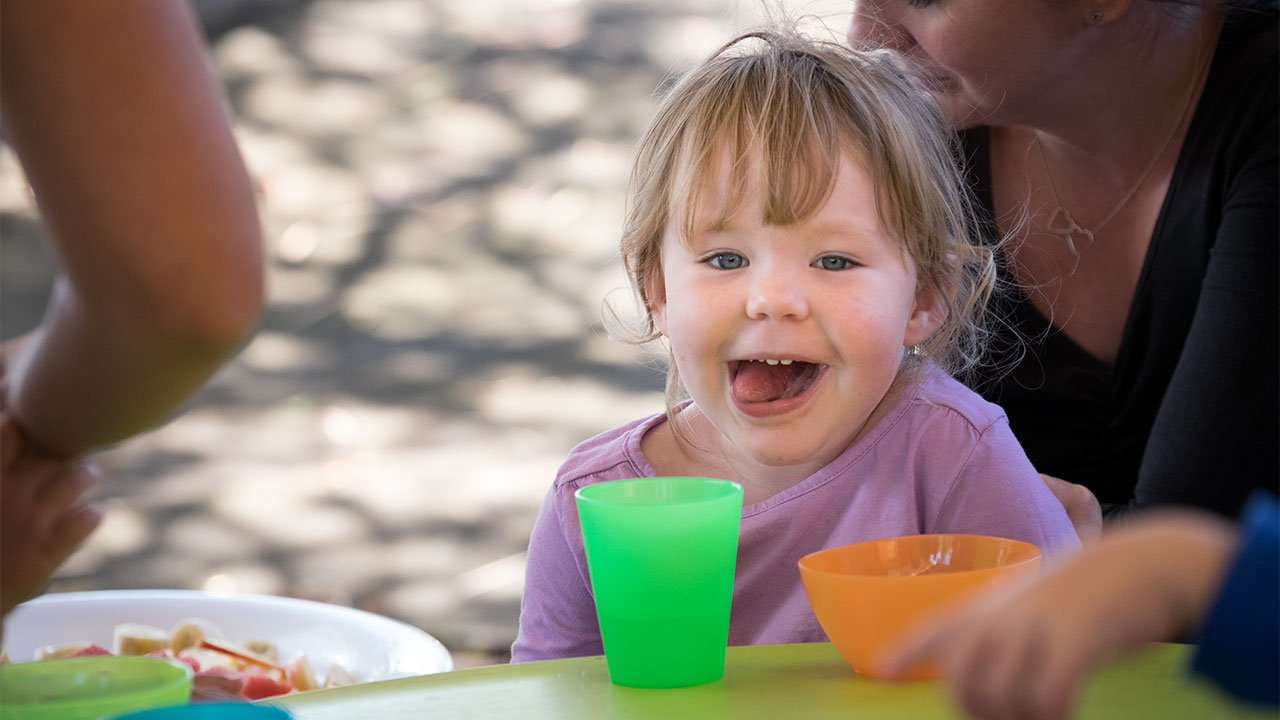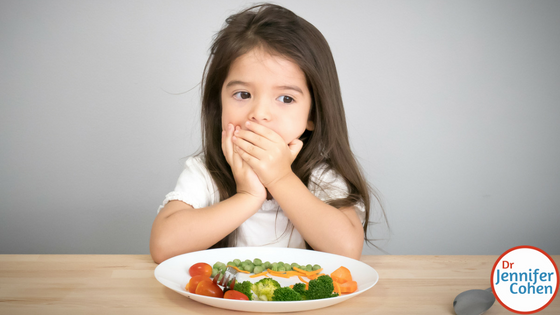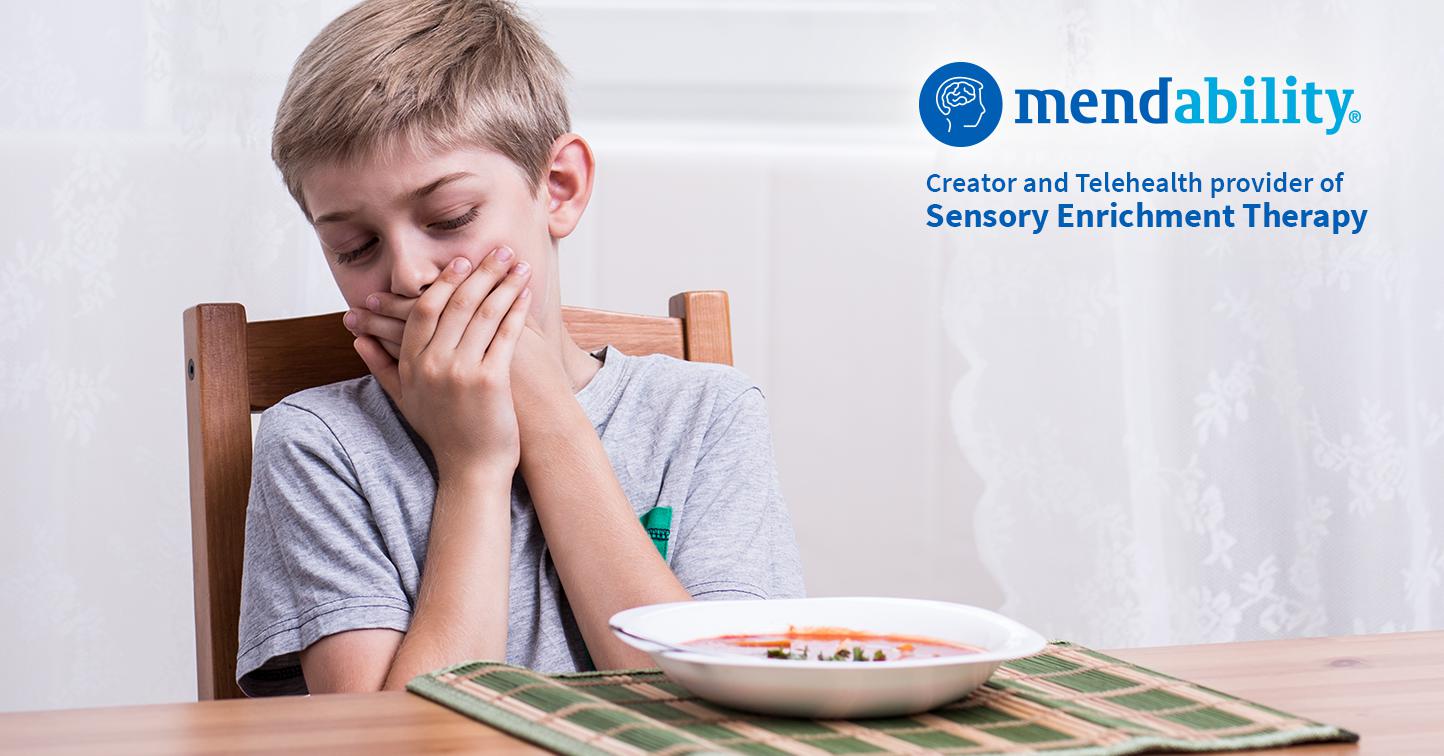Medical Assessments For Feeding And Eating Skills
First, if not already done, it is important to conduct a thorough dental exam to check teeth and gums for cavities, infection and/or other abnormalities. These sometimes hidden problems may be causing a child pain and lead to eating and feeding difficulties. Due to sensory sensitivities regular teeth brushing and oral care may be difficult for children on the autism spectrum.
Going to the dentist may also be difficult due to these oral sensitivities and fear of unfamiliar people and places. Working with an experienced pediatric dentist can help if this is the case with your child.
In regard to feeding and eating skills, medical assessments can include evaluation of oral motor function including swallowing studies, assessments of food sensitivities and allergies, medications, and their effect on eating, and a profile of the childs diet and resulting nutritional issues.
An eating history should be taken. The eating history should include gathering the following information:
- Details of extensive choking, coughing or gagging when eating
- Loss of oxygen while eating
- Pattern of liquids or foods that emerge through the childs nostrils when eating and
- Reoccurring respiratory difficulties and/or pneumonia.
Getting Help For Fussy Eating In Autistic Children And Teenagers
If your child eats in a very selective or restrictive way or seems to have a small or reduced appetite, they might not be getting the nutrients they need. Its a good idea to talk with your childs GP or paediatrician or a dietitian. And its always best to talk with one of these professionals if you think you need to supplement or significantly change your childs diet.
Parenting A Fussy Child
There are various factors influencing later behavioral problems, ranging from a genetic predisposition to parenting style to stress experienced while still in the womb. Exactly how these factors interact and play out during a child’s development is not well understood, but researchers have noted that childhood environment, including parenting style, in combination with infant fussiness are powerful predictors of future problems.
“The vast majority of infants are born completely disregulated. They have no ability to self-soothe, they adhere to no schedule of sleep or elimination, and they must learn how to feed. The infant becomes regulated only via the infant-care giver relationship, and is therefore quite dependent on a reliable and empathic care giver,” says Briggs.
The question becomes, how can caregivers parent in a way that enables children to learn good emotional and physical regulation skills?
What these children need is a great deal of structure, Wolke says: “They need predictable patterns for eating and sleeping. They need to be allowed to calm themselves or they will always depend on of being held or fed or whatever is used to soothe them.”
Babies who are difficult to soothe often spur parents to resort to soothing “tricks,” such as rides in the car, feeding the baby into submission, or constant holding. Though these techniques work in the short-term, the fussy infant never learns how to soothe themselves.
Also Check: Can Autism Be Passed Down
Autism Linked To Sleep Problems And Brain Changes In Infancy
Topics:
Baby monitor:
Listen to this story:
Children with autism are more likely than typical children to have had problems falling asleep as infants, according to a new study1. These infants also have more growth in the hippocampus, the brains memory hub, from age 6 to 24 months.
The study is the first to link sleep problems to altered brain development in infants later diagnosed with autism.
Sleep difficulties are common in autistic children: Nearly 80 percent of autistic preschoolers have trouble sleeping2. But little is known about the interplay between sleep and brain development in early life, says lead investigator Annette Estes, director of the UW Autism Center at the University of Washington in Seattle.
The researchers examined the sleep patterns and brain scans of infants who have autistic older siblings, a group known as baby sibs. Baby sibs are 20 times as likely to be diagnosed with autism as are children in the general population, and they often show signs of autism early in life.
The study shows an association between sleep problems and brain structure in babies who have autism. But it is too early to say whether sleep troubles contribute to brain changes and autism traits or vice versa, or whether some common factor underlies all three, Estes says. It is also not clear what, if any, connection exists between these findings and the well-documented sleep problems in older autistic children.
How I Finally Figured Out My Son Had Autism

Lourdes E. Quintana, MS Shirliene Navarro
While a formal diagnosis of autism can only be made by medical professionals, parents are often the first ones to spot symptoms of neurological conditions. Thats what happened with Shirliene Navarro. Just before her sons first birthday, Shirliene started noticing behaviors that were different from other children his age. Marcello would flap his hands vigorously as if he might fly away or spin in circles but never get dizzy.
At Marcellos first birthday party, Shirliene became increasingly concerned. Despite the presence of friends and family, Marcello didnt seem to notice anyone in the room. Instead, he stared at the ceiling fan and would not look away. To get his attention, party-goers put his birthday cake in front of him and touched his hand to it. Marcello started screaming at the top of his lungs and flailing his arms. Shirliene had no idea why he was so upset. Now, looking back, she realizes her son couldnt stand the feeling of icing on his hands. As time went by, she discovered he didnt seem to like being touched at all and would often cry or howl when touched, as if in pain.
You May Like: What Is The Symbol For Autism
Autism Signs By 3 Months
- She doesn’t follow moving objects with her eyes: Babies at high risk for autism dont follow caregivers as they move in the visual field, says Dr. Frazier. They may be more intrigued by something like a blanket.
- She doesn’t respond to loud noises.
-
She doesn’t grasp and hold objects.
-
She doesn’t pay attention to new faces
Checklists Of Autism Signs
Through its Learn the Signs. Act Early campaign, the CDC aims to raise awareness of the early signs of developmental delay, including autism. Through a series of milestone checklists, the CDC provides information on what most babies do at different ages and which signs parents should discuss with their childs doctor. Milestones are included for children 2 months to 5 years of age, reflecting a belief among researchers that even infants may show early autism signs.
Early signs of autism or other developmental delays include the following:
Also Check: What Is The Life Expectancy Of People With Autism
Want More Specific Guidance For Your Child
Our Q-CHAT checklist tool, developed in association with Professor Simon Baron-Cohen of Cambridge University, will give a good indication whether your toddler is likely to be autistic.
We would also recommend checking out our book, Transforming Autism, which provides a detailed description of Guy ‘s journey taking care of his own autistic son whose autism was identified at age 1. It is written with the intention of being genuinely useful in terms of providing tangible principles and behaviours that families can practically use to give some level of support to their young children.
Possible Signs Of Autism In Babies
As you research this disorder, print this handy checklist of early autism symptoms to help you assess your child’s development. If you need help downloading the printable, check out these helpful tips.
You are probably already watching your baby’s development and rejoicing as he or she meets milestones. However, you may also have concerns about your child’s development. Even in babies under the age of 12 months, there are certain signs that may point to ASD.
Recommended Reading: Does Nick Eh 30 Have Autism
Limited Or No Response To Their Name
At 6 months , most infants show an awareness of their own names, especially when its spoken by their mother.
Autistic infants show a developmental difference: By 9 months, many babies who later develop ASD dont orient to their own names. say this usually appears as a pattern of nonresponse, rather than a single instance.
Early Signs Of Autism In Infants Toddlers And Preschoolers
According to the Centers for Disease Control and Prevention , about 1 in 59 school-aged children in the United States has been identified with autism spectrum disorder , a condition characterized by difficulties with social interactions and by behavioral challenges. Boys are four times more likely to be diagnosed with autism than girls, as girls may be more likely to have symptoms, such as social impairment, that are harder to detect than behavioral issues.
Recommended Reading: Level 2 Autism
Autism Signs By 7 Months
- She doesn’t turn her head to locate where sounds are coming from.
-
She shows no affection for you.
-
She doesn’t laugh or make squealing sounds.
-
She doesn’t reach for objects.
-
She doesn’t smile on her own.
-
She doesn’t try to attract attention through actions.
-
She doesn’t have any interest in games such as peekaboo.
Fussiness In Infancy May Predict Future Behavior Problems Study Finds

Very fussy infants are more likely to have behavioral problems later on.
Alternative Treatments For Colic?
April 21, 2011 — “He would cry all the time. It was all about him. I couldn’t shower, couldn’t eat. I lost 15 pounds. I couldn’t do anything. My baby was driving me crazy,” one mother told workers at the Fussy Baby Network, a support center for parents of infants with crying and sleeping problems.
“Just doing the simplest things, it is just not possible,” said another. “I could not get my baby and my dog out the door at the same time. I simply could not do it.”
Most parents are familiar with the sleepless nights and the pull-your-hair-out frustration that can come with having a fussy baby. But there might be something more to worry about. Researchers from the U.K. have found that infants with persistent crying, sleeping and eating problems were more likely to have behavioral problems, such as attention deficit hyperactivity disorder, depression, anxiety and aggression, later on.
This doesn’t mean that a fussy baby is doomed to a troubled life, only that the warning signs for later problems can appear in the first months of life, pediatricians say.
“I don’t suggest that parents worry per se, but I do suggest that they pay very close attention to these important developmental tasks, and interrelational achievements, characteristic of the first year of life,” says Dr. Rahil Briggs, director of New York’s Montefiore Medical Center’s parenting program, Healthy Steps.
Read Also: Is Freddie Highmore Actually Autistic
Can You Tell If A 1 Month Old Has Autism
Generally, autism can be diagnosed as early as 18 months of age. However, researchers from the Sackler Institute for Developmental Psychobiology at Columbia University found a biomarker that may be able to predict a high risk of autism in 1- to 2-month old infants.
No Pointing Or Gestures
Along with not showing toys or skills to other people, many children with autism don’t point to objects or use gestures to communicate. They also may not follow a pointing finger to look at something. If you notice your child never uses gestures and does not seem to understand any of the gestures you use, this may indicate a developmental problem like ASD.
Don’t Miss: Do People With Autism Die Early
How To Handle Fussy Eating And Encourage Varied Diets For Autistic Children
Try not be discouraged if you dont see improvements in your childs fussy eating habits or diet at first. Finding new foods that work for your child can take time. Also, your childs preferences might change and they might be more willing to try different foods as they get older.
Here are some ways you can encourage your child to start trying new foods.
When you share regular meals and snacks with your child, you model healthy eating habits and a varied diet for your child. You also avoid rewarding fussy eating behaviour with separate or special meals. When youre using this approach, give your child food that you know theyll eat as well as new foods, and let your child decide whether they want to try the new food.
Introduce new foods that are similar to familiar foodsIf your child finds change difficult, your child might take a while to get comfortable with new foods.
You can help your child to accept new foods by introducing foods that have a similar texture, colour or smell to other foods that you know your child enjoys. Try putting the new food near the food that they like. For example, if your child wont try broccoli, you could try putting the broccoli near some cauliflower. You could also let your child sniff or lick the broccoli to get used to the look, feel and smell of it. Just let your child know that they dont have to eat the broccoli.
You might have to do this over several meals before your child is willing to even take a bite of the new food.
Accelerated Growth Of The Circumference Of The Head In Relation To Its Starting Point
A study conducted by Courchesne found that, in certain cases, children diagnosed with autism were born with small head circumferences, but within two years the circumference grew rapidly so that it reached larger dimensions of head circumference in comparison to typical development of children. This sign is not conclusive for autism.
It is important to note that each of these symptoms may indicate other disorders not related to autism! It is therefore imperative to first and foremost conduct medical examinations to negate these possibilities. Once this has been done and two of the above-mentioned symptoms persist over time, the possibility of a development disorder linked to autism should be investigated.
Recommended Reading: Autism Inheritance Pattern
Picky Eating Vs Food Rejection: Autistic Children Struggle More With Food Preferences
Many children become picky eaters as they enter toddlerhood, refusing certain foods because of taste, smell, texture, and other reasons. For parents, it may seem like your child is being obstinate for no reason, and that can be very frustrating, especially as you try to move them from baby food to regular food, encourage them to eat fruits and vegetables, and experience new food that may not be like the food they enjoy the most.
Problems with eating in children on the autism spectrum are significantly different from the colloquial picky eating. While most children become picky eaters at some point, they grow out of it.
Children with autism retain this hyper-focus on certain types of food unless they receive behavior therapy. Nutritional therapy can also help to ensure your child is getting a balanced diet.
What Is The Treatment Of Fussy And Picky Eating
Each baby or child is different and requires a individualised treatment plan according to the symptoms they are presenting with and the behaviours they are exuding. Our specialist dietitians will assess and treat your baby or child according to their symptoms. Our dietitians will ensure your baby or child is receiving adequate nutrition and will reduce the picky and fussy eating behaviours that they are exuding.
If you think your baby or child is showing any of the symptoms above, they could benefit from seeing our specialist feeding team. To see if they can help please contact us.
Related pages:
You May Like: Is Dr Shaun Murphy Really Autistic
What Are The Signs Of Autism In Babies
Autism doesnt change a babys physical appearance. The condition does affect how babies communicate and how they relate to the world around them.
Autism is described as a spectrum condition because signs, symptoms, and abilities can vary widely. If you notice any of these developmental differences, its important to talk with your childs doctor or healthcare professional about them.
Autism In The Classroom

Fortunately, the economic rancor hasn’t seemed to spill out into the classroom or onto the playground. Parents of autistic children like Peter Bell and educators like Rosemarie Young, immediate past president of the National Association of Elementary School Principals in Alexandria, VA, say that playmates and classmates respond to autism’s spectrum of symptoms with their own spectrum of inquisitiveness, awareness, kindness, and understanding. “If the principal has set the right tone for the school and the teacher has set the right tone for the classroom,” says Young, “the children are very understanding and very accepting.”
Each fall since Tyler Bell was in kindergarten, his dad or mom would visit his classroom, using age-appropriate language to explain what it’s like to have autism. Kids would try to become experts, says Bell, and volunteer all manner of medical information. One child suggested that his father, a pharmacist, might have access to medicine that could help Tyler. Or they’d empathize — drawing parallels between Tyler’s behavior and, say, their own comportment in church . Or they’d be observant and inquisitive. “They’d ask, ‘Why does Tyler like to eat crunchy things so much?'” Bell recalls.
“Tyler really, really, really likes math,” Range confides. “So when he starts to get hyper in line or something, we give him some math facts. We just go, what’s 92 times 64? And then he’s fine. Sometimes he spends his whole study hall just doing math facts.”
Also Check: What Is The Life Expectancy Of People With Autism